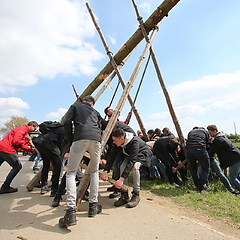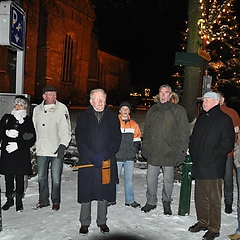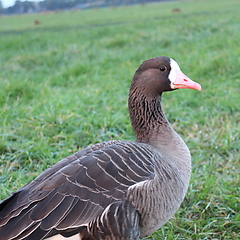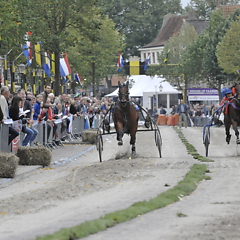Every year, on the first Monday of September, the horse market takes place in Elst. Large numbers of horses are brought in for sale. The trade still happens in the traditional way: the horse is well-examined and watched, meaning that one makes the animal walk and trot, so that the movements of the horse can be judged. And then the game of bargaining begins, until one agrees on the price and the sale is sealed with a slap in the hand. Payment is done cash most of the time and the new owner takes the horse away immediately. The market has yet another important economic significance. The recreational function of the Elst Horse Market cannot be underestimated. In Elst, it is the day on which the family is visited, but visits to the associated autumn fair, the goods market and the local bars and restaurants are of more than equal importance. In recent years the event is visited by at least 40,000 people. At home the people from Elst treat their family and visitors to the Elster mik, a traditionally baked loaf of bread, richly filled with fruits, which belongs to the horse market feeling.



